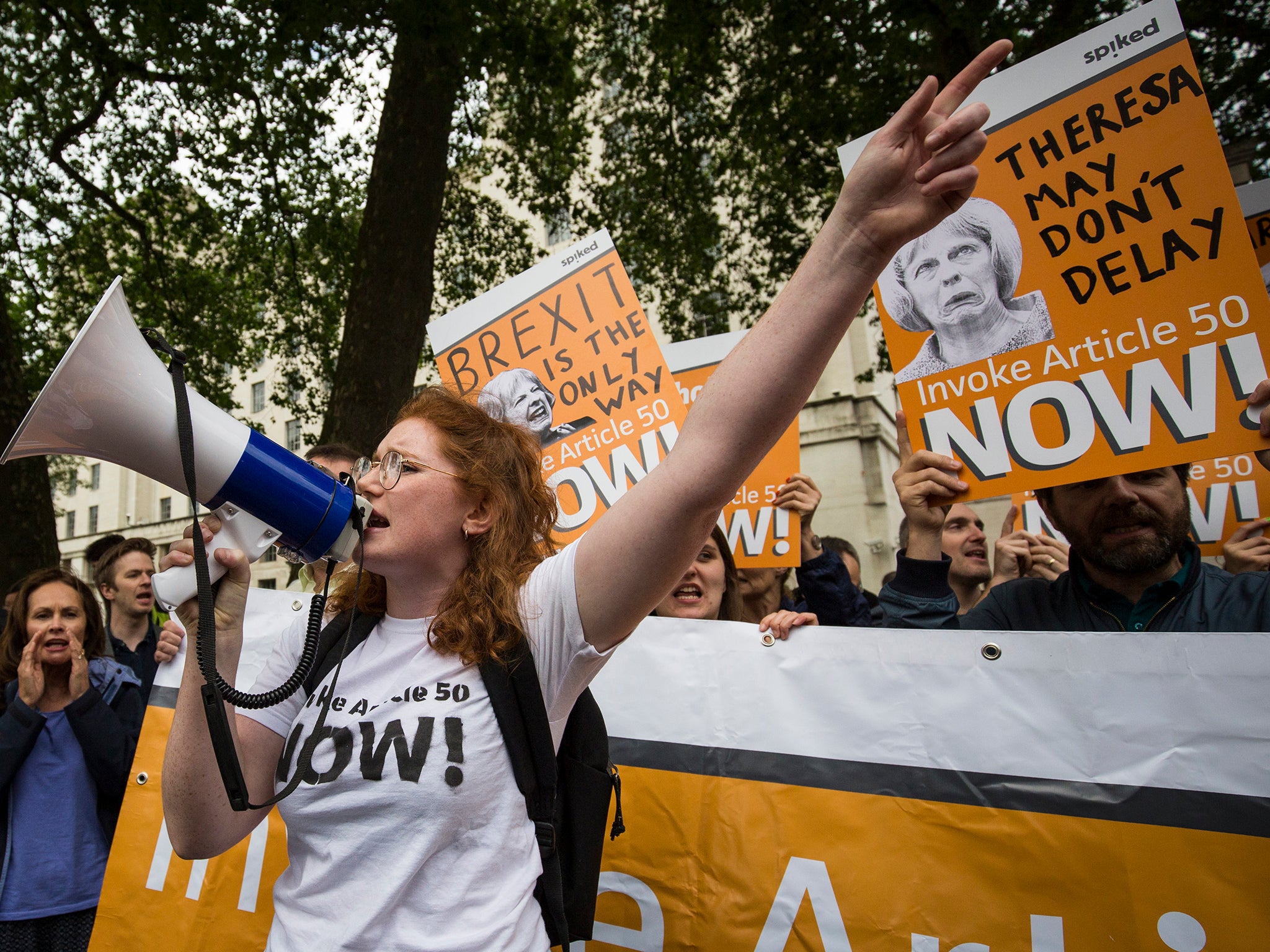What will the British economy look like after Brexit? Here's who you should believe – and who you should ignore
The question for the whole of the West is whether it can continue to advance. Living standards in all the major developed economies are at best only a little higher than they were a decade ago – and, in some cases, well below. We shouldn't sneer at the Bank of England's pessimistic expectations


There is too much background noise and that makes it hard to hear the signals. The International Monetary Fund revises its forecasts up and down, the markets pound sterling and boost share prices. The Bank of England seems to have been surprised by the strength of our economy and may be cooling on the idea of another cut in interest rates. So what should we look at, or listen to, if we want to understand what is happening to the British – and indeed the world – economy?
There are three elements we should keep a close eye on: the long-term trends of the world economy; the shape of the global economic cycle; and the particular issues affecting the UK, including of course Brexit.
As far as the first is concerned, there is a wealth of data and wealth of controversy. Some things are pretty clear: that the developing world will grow faster than the developed world for the foreseeable future, gradually narrowing the gap. The famous BRICs report by Goldman Sachs now seems a little tarnished, with Brazil and Russia both hitting the buffers, but other work by HSBC and others confirms the big view that China will pass the US as the world’s largest economy in about 10 years’ time.
But this growth is essentially catch-up. Emerging economies are growing swiftly because they are deploying the technologies and efficiencies developed in the West. The question for the West is whether it can continue to advance, or whether something has gone wrong. After all, living standards in all the major developed economies seem at best to be only a little higher than they were a decade ago – and, in some cases, such as Italy – well below.
Here there are two quite different views. One is that the advanced economies face “secular stagnation”, an expression popularised by US economist Larry Summers. The idea here is that for a number of reasons, including demography, the West will stagnate, rather as Japan has done. Our young people will, for the first time for at least three-quarters of a century, have lower living standards than their parents.
The other view, articulated for example by Hal Varian, chief economist at Google, is that we are under-measuring the impact of the communications revolution has already had on economic activity and living standards, and that we are underestimating the impact that further developments will have in the future. We underplay, for example, the impact of Facebook and Google, and we fail to see how developments such as artificial intelligence and machine learning will have on improving our health and welfare.
No one knows which view is right – I incline towards the more optimistic – but we can all agree that it is a fascinating and vital debate.
To understand the economic cycle, the best place to start is the IMF’s World Economic Outlook, which comes out twice a year. The latest issue, just out, is a thorough, if conventional, summary of what the experts expect. I know experts, especially economic ones, are distrusted, and the IMF has made some bad judgements, particularly about the UK. But they have a new chief economist who is more sensible, and a strong team. Their big picture vision feels about right: that there is some sort of slowdown taking place in the world economy – no serious recession around the corner, but a longer-term challenge of slow growth.
There are more apocalyptic visions. These include a new global recession triggered by a financial collapse in China, or maybe by rising interest rates hitting the great burden of debt the developed world is carrying. Some people fear a collapse of the Eurozone, given its weak banks. But – and this is a comfort – not many people are predicting a downturn anything like as serious was 2008-9.
And what about Britain specifically? The Brexit uncertainties are huge. We should not sneer at the Bank of England’s economists for being over-pessimistic in their initial expectations, for they were in good company.
By November, when we get the next Office for Budget Responsibility report on the economy, we will know much more. I would trust the OBR. We were growing decently before the referendum and we will go on growing despite the vote. But whatever your view about the whole business, I have not seen a single forecast that suggests the growth in the short-term will be higher as a result. In the long-term the decision may be positive, by pushing the UK towards faster-growing economies outside Europe. But in the next few years, the uncertainties will generate headwinds and we will just have to lean against them.


Join our commenting forum
Join thought-provoking conversations, follow other Independent readers and see their replies